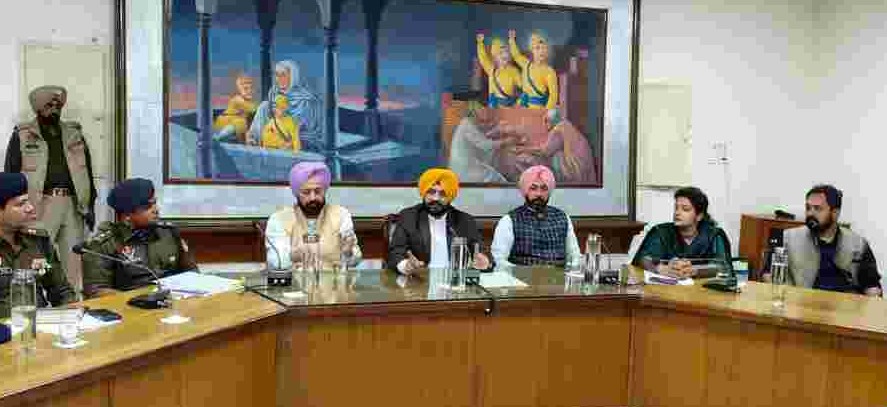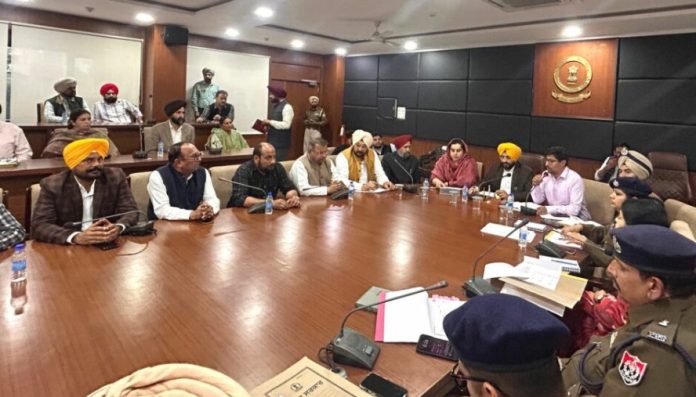Punjab has long been facing challenges related to drug trafficking, with authorities making continuous efforts to combat the issue and protect the youth from falling into the trap of addiction. The state government, along with law enforcement agencies, has reiterated its commitment to ensuring that drug traffickers find no safe haven in Punjab. A comprehensive approach involving stricter enforcement, awareness campaigns, and rehabilitation programs has been initiated to curb the drug menace effectively.
The impact of drug trafficking in Punjab has been devastating, affecting not only individuals but also families and communities at large. Substance abuse has led to severe social and economic repercussions, increasing crime rates and deteriorating public health. Understanding the gravity of the situation, the Punjab government has intensified its crackdown on drug smugglers, dealers, and syndicates operating within the state. With the introduction of advanced surveillance techniques and intelligence-sharing mechanisms, authorities have successfully dismantled several drug networks, arresting key figures involved in illicit activities.
One of the most significant measures taken by the Punjab government is the implementation of stringent laws and policies to deter drug trafficking. Law enforcement agencies have been provided with modern equipment and technology to track and apprehend offenders efficiently. The police and special task forces have been actively conducting raids, seizing substantial quantities of narcotics, and filing cases against culprits involved in drug peddling. The use of drones, CCTV monitoring, and digital forensics has enhanced the ability to intercept drug consignments before they reach their intended destinations.
Apart from enforcement, the government has been working on preventive strategies to reduce demand for drugs in the state. Massive awareness campaigns have been launched to educate people, especially the youth, about the dangers of drug addiction. Schools, colleges, and community centers have been actively engaged in spreading the message of a drug-free Punjab. Programs featuring ex-addicts sharing their recovery stories have been instrumental in discouraging potential users from experimenting with drugs.

Rehabilitation and de-addiction centers have also been established to assist individuals struggling with substance abuse. These centers offer counseling, medical treatment, and vocational training to help former addicts reintegrate into society as responsible citizens. The government has partnered with non-governmental organizations (NGOs) and healthcare professionals to provide necessary support and rehabilitation services. Many individuals who have undergone treatment at these centers have successfully transformed their lives, serving as inspiration for others seeking a way out of addiction.
The role of border security forces in tackling drug smuggling cannot be ignored. Punjab, being a border state, has witnessed several instances of narcotics being smuggled in from across international borders. The Border Security Force (BSF) has strengthened its vigil along the India-Pakistan border, preventing the entry of drugs into Indian territory. Advanced surveillance systems, including night vision cameras and motion detectors, have been deployed to thwart smuggling attempts. Regular patrolling and intelligence coordination between BSF and Punjab Police have led to the interception of numerous drug consignments.
The judiciary has also played a crucial role in ensuring that drug traffickers receive strict punishment. Fast-track courts have been set up to handle cases related to drug offenses, ensuring swift justice and discouraging others from engaging in such illegal activities. Judges have been instructed to take a zero-tolerance approach towards drug-related crimes, sentencing offenders to long-term imprisonment and imposing heavy fines.
Public cooperation has emerged as a key factor in making Punjab drug-free. Local communities, religious organizations, and social activists have been actively involved in reporting suspicious activities and individuals involved in drug trade. Citizen-led initiatives, such as neighborhood watch groups and anonymous tip-off helplines, have proven effective in assisting law enforcement agencies in their fight against drug trafficking. The collective effort of the public and the government has created a strong deterrent for drug dealers operating in the region.
Despite the progress made, challenges remain in completely eradicating drug trafficking from Punjab. The constantly evolving tactics of smugglers, who use new routes and concealment methods, require law enforcement agencies to stay ahead with innovative countermeasures. Cross-border drug syndicates continue to pose a significant threat, necessitating greater coordination between national and international security agencies. Additionally, addressing the root causes of drug addiction, such as unemployment and mental health issues, remains an ongoing challenge that needs sustained efforts.
The Punjab government remains unwavering in its mission to eliminate drug trafficking and addiction from the state. With continued investment in law enforcement, awareness, and rehabilitation, a future free from the scourge of drugs is within reach. The collective efforts of government agencies, security forces, judiciary, and the public serve as a beacon of hope for a healthier, drug-free Punjab. The message is clear—there is no place for drug traffickers in Punjab, and every possible measure will be taken to ensure that the state remains safe and secure for its citizens.


